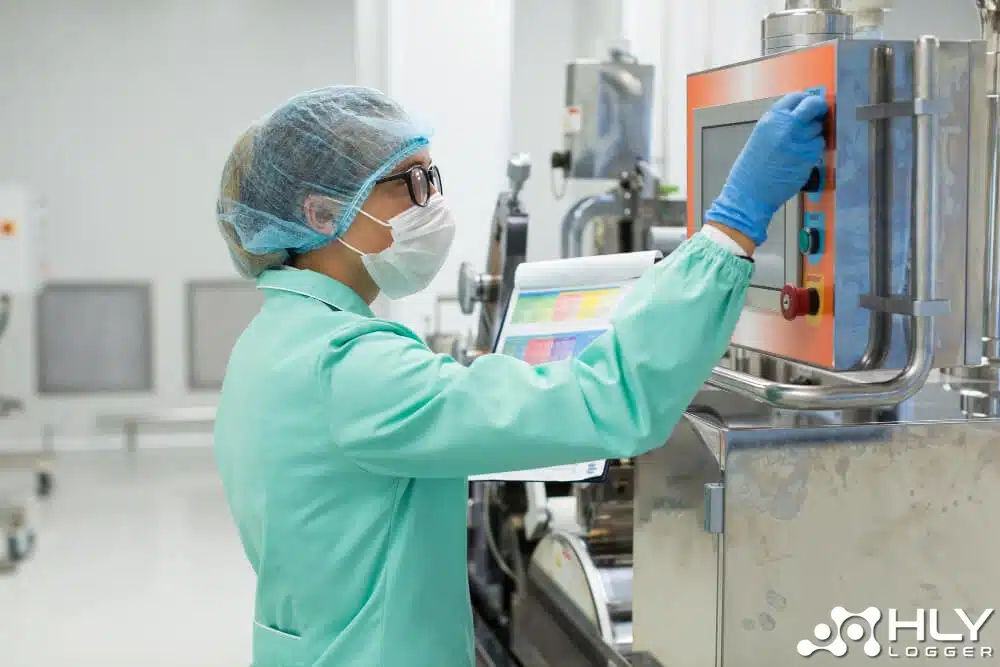The pharmaceutical cold chain is a vital component of the healthcare industry, ensuring the integrity and effectiveness of temperature-sensitive medical products. A well-maintained cold chain keeps these products within the correct temperature range throughout the supply chain. It’s not only the right equipment that personnel need, but also the skills and resilience to use that equipment effectively.
Every member of the pharmaceutical cold chain team must be fully dedicated to ensuring that these medical products maintain the correct temperature throughout the entire cold chain process, from production to when consumers use the products.
The personnel involved in the pharmaceutical cold chain are on the front line of public health and safety, and their role is as valuable as the cold chain system itself. By adhering to best practices, these professionals help keep the business running smoothly and ensure consumer satisfaction.
Cold chain management within an organization is complex, with each task focused on controlling the temperature and environmental conditions of medicines and other pharmaceutical products. The team is responsible for preparing the entire supply chain, including production, storage, transportation, and distribution.
A solid team will develop various strategies to ensure the smooth operation of the process. They must also coordinate with manufacturers, distributors, and healthcare providers to leverage technological innovations that maintain the quality and integrity of the products. Lastly, they must ensure the safety of consumers who rely on these products.
Contents
How Important Is the Pharmaceutical Cold Chain?
Pharmaceutical companies depend heavily on the cold chain for storage, temperature control, quality control, and the distribution of medical products. This is crucial because many pharmaceutical products require special care to maintain their efficacy until they reach the consumer.
The value of cold chain logistics contributes more than 25 percent to the pharmaceutical industry. There is a growing demand for high-quality products, and the pharmaceutical cold chain meets this demand through temperature control using advanced technology. Biological materials derived from human cells also attract consumers seeking the best therapy or health treatments to improve their quality of life.
Biological materials are highly sensitive to temperature changes. Therefore, cold chain management providers stay abreast of customer needs by incorporating the latest technology in data loggers, temperature sensors, cloud computing solutions, and telematics. These technologies enable remote, real-time tracking and monitoring of temperatures.
Without adequate technology, the pharmaceutical industry would fall short in terms of safety. Temperature-sensitive medicines, such as insulin and antibiotics, require precise storage conditions. Insulin loses its effectiveness when stored at extremely cold temperatures, while most antibiotics become less effective if exposed to heat for too long.
Human body parts, such as blood, cells, and tissues, also need to be kept at ideal temperatures to prevent damage before reaching consumers.
How Does the Pharmaceutical Cold Chain Work?
Pharmaceutical companies involved in the cold chain must take their management responsibilities seriously. This includes continuous monitoring, meticulous documentation or digital recording, quick problem resolution, and consistent application of cold chain management practices. Effective management is essential for gaining consumer trust and enhancing the company’s reputation through competitive advantages.
We all recognize the importance of the pharmaceutical cold chain, which operates with detailed processes, including:
GPS Tracking
Cold chain management utilizes GPS tracking to monitor product shipments. Sophisticated equipment provides telemetry readings to determine the location of shipments, and live digital maps allow you to monitor transportation speed.
Temperature Monitoring
Real-time temperature sensors offer accurate data on the control of pharmaceutical product temperatures. Humidity levels in the storage area are also monitored, along with the battery status and voltage of the cooling unit, allowing for timely battery replacement to prevent issues.
Analytical Reports
Cold chain monitoring generates real-time analytical reports, covering temperature and humidity levels, asset utilization, service hours, driver behavior, and fuel consumption.
Route Optimization
To ensure timely delivery, route optimization features help drivers find the most effective and least obstructive routes, preventing delays in pharmaceutical product supply.
Driver Monitoring During Distribution
Drivers can be monitored throughout the distribution process to ensure that refrigerator temperatures remain within the correct range. Cold chain software and special sensors track driver behavior, ensuring that products arrive safely and on time.
Professional Pharmaceutical Cold Chain Management
If you’re looking for a pharmaceutical cold chain management, consider contacting HLY Technology Co., Ltd. We supply advanced equipment and IoT solutions for the pharmaceutical cold chain. Since 2011, we have brought the future of cold chain management to you through extensive research, innovative developments, and the application of cutting-edge technologies.
All in all, we design disposable and reusable data loggers that help pharmaceutical companies ensure optimal performance and cold chain operations. Don’t hesitate to place your order now or you can visit our office first in Shenzhen, China.

